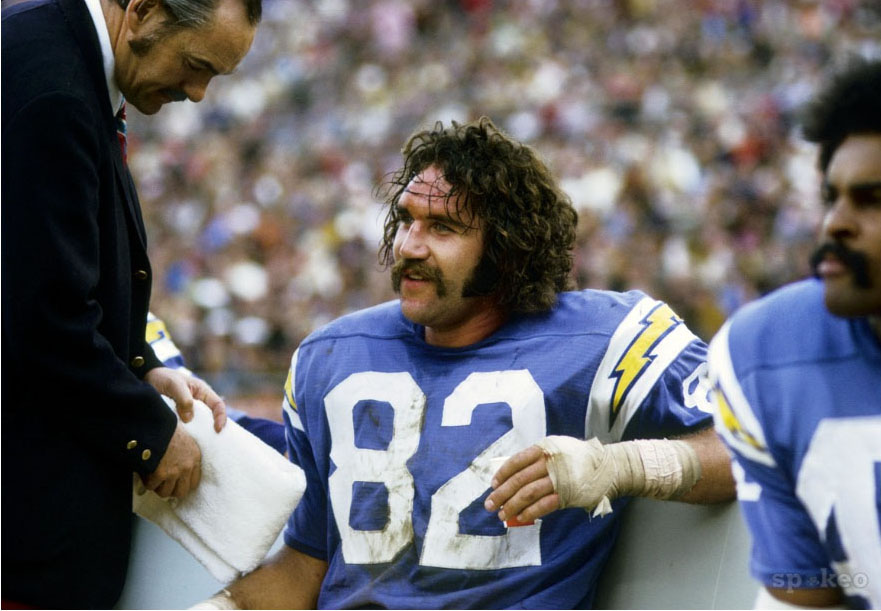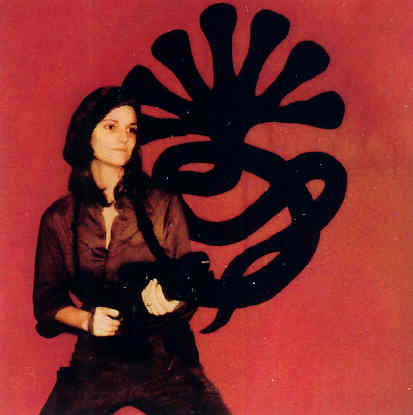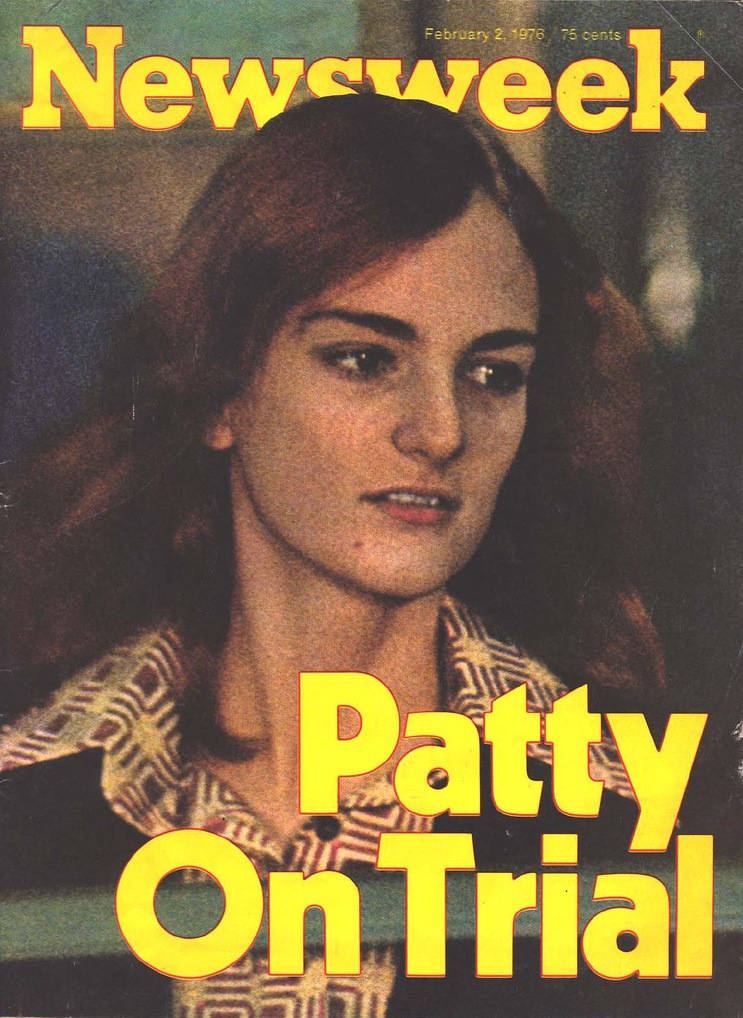The Dallas Cowboys under GM Tex Schramm and control-freak coach Tom Landry favored bleeding-edge technological, computer and neuropsychological systems, but according to psychiatrist Dr. Arnold Mandell’s The Nightmare Season, the San Diego Chargers of 1973 were hopped up on drugs intended to produce “rageful football syndrome.” Whenever anybody talks about the good old days when sports were “clean,” realize they’re being nostalgic for a yesterday that never actually existed.
From Barbara Wilkins’ 1976 People profile of the shrink and his controversial book:
I’ve tried every drug except cocaine,” says Dr. Arnold Mandell. “LSD? An incredibly beautiful, insightful experience. Lithium? It takes my bright edge off. Heroin? Just like morphine, a cosmically sensual experience. Marijuana? Not that interesting.”
Because Mandell, a psychiatrist, is a prominent researcher into brain chemistry and psychopharmacology, his experiments with dangerous drugs are understandable. But it is not so easy to comprehend why Dr. Mandell ever got involved professionally with the San Diego Chargers.
Actually, Mandell first became interested in football because of his son, Ross, now 13, and he was also a social friend of Chargers owner Gene Klein. And in 1972 San Diego was having such a miserable season that coach Harland Svare was willing to try anything. He asked Mandell to become resident shrink for a team which then included Duane Thomas, the All-Pro recluse, and Tim Rossovich, the linebacker notorious for eating glass. Observing the players close up, Mandell (who insisted that he not be paid) says he discovered that they were typecast: those who played on offense were conservative and more disciplined; most defensive players were free spirits.
Mandell also learned how much some team members depended on amphetamines. “Doc,” one player told him, “I’m not about to go out there against a guy who’s grunting and drooling and comin’ at me with big dilated pupils unless I’m in the same condition.”
Mandell says that 50 to 60 percent of the Chargers used drugs to produce “the rageful football syndrome.” But he argues, “This was not drug abuse. There was great self-discipline. They hated it, but it was drug use for function. Nobody used it off season.”
If Mandell had kept his ruminations to himself, he might still have friends on the team. Instead he wrote a book, The Nightmare Season, out this month, portions of which were published in a San Diego newspaper. His erstwhile friend Gene Klein says, “The book is totally inaccurate. It’s full of lies and innuendos.” And when Harland Svare was fired as general manager, he blamed Mandell’s book for “destroying my credibility” and vowed to “pursue all remedies available.”
“I love Gene,” psychiatrist Mandell says, “I love Harland. If they can’t see the love in the book, it makes me crazy.” The National Football League did not see it either, apparently, and banned Mandell unofficially from NFL locker rooms for life, as well as fining Klein, Svare and eight San Diego players.•




